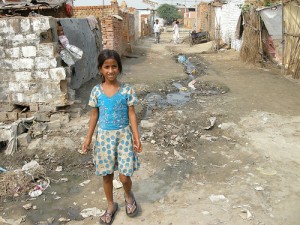Experts hope scholars in Pakistan and India to extend dialogue on peri-urban issues
Monday, December 19th, 2011 8:17:57 by Fayyaz Yaseen
Experts hope scholars in Pakistan and India to extend dialogue on peri-urban issues
ISLAMABAD: The experts hoped extending dialogue between Indian and Pakistani scholars on peri-urbanism, collaboration to integrate and analyze information about the degree of rural, urban and peri-urban characteristics, and exploring
potential environmental, health and governance issues within these areas will help to improve the conditions of these areas.
Indian and Pakistani scholars said it during the opening day of three-day project inception workshop of two-years track-II project titled “Rural to urban transitions and the peri-urban interface: Identifying, mapping, and understanding
peri-urban areas in India and Pakistan” organized by Sustainable Development Policy Institute (SDPI), Islamabad in collaboration with East-West Center (EWC), Honolulu, USA and South Asia Consortium for Interdisciplinary Water Resources Studies (SaciWATERs),
Hyderabad, India. The track-II project is being funded by the US State department and one of the core objectives of the project is to engage youth and students in joint discussions and researchers on issues of peri-urbanization.
It was explained that peri-urban areas are transition zones where urban and rural activities are juxtaposed and landscape features are subject to rapid modifications induced by human activities. Peri-urban areas occupy large portions
of national landscapes and are home to hundreds of millions of people. They face unique problems including intense pressures on resources, slum formation, lack of adequate services such as water and sanitation, poor planning and degradation of farmland. These
areas are often neglected by both rural and urban administrators because they are located beyond the administrative boundaries of cities in zones that are generally not identified as specific entities of planning.
Dr. Abid Q. Suleri, Executive Director, SDPI expressed comparative study between India and Pakistan to study peri-urbanisation is the ‘need of the day’. “The global crisis of development demands us to review of development paradigms
and learn from the East and ensure sharing information among each other and compete on positive aspects instead of weapons and negative aspects” he added. He maintained that problems faced by India and Pakistan are similar and hence their solutions might be
the same. “These joint research initiatives will bring our ordinary citizens closer to each other and which is vital for normalization of relationships among South Asian neighbors” he went on saying.
Dr Sumeet Saksena of the East-West Centre USA gave a brief introduction of his 50-years old organization which was created by the department of State to ensure cooperation between US and Asia Pacific on research and cultural promotion
with a particular focus on youth and students. He said there is no clear definition of “peri-urban” and urged a working definition for South Asia to enable to stakeholders to take care of basic services of citizens in these areas and hoped this process will
also help to determine a research agenda for better governance of environmental and health issues in these areas.
Shams-ul-Mulk, former chairman WAPDA said that in 21st century India and Pakistan have no other options but to cooperate with each other as both countries have same problems and same institutional frameworks for a very
long time. He underscored massive unplanned urbanization and cities and their safe drinking water and health issues need immediate attention as these issues are not ordinary ones and further delayed response will make these problems unsolvable which is very
important for our future existence.
Daniyal Aziz, former chairman National Reconstruction Bureau (NRB) highlighted the evolution of today’s unplanned urbanization maintained that several structural problems involving legal, social, political and attidunal at various
levels have hampered the decentralization process and delivery of municipal services at local level. “Despite their exponential population growth, several rural towns and villages could not be declared as municipal towns due to absence of fresh census and
will for investment which resulted into absence of municipal services in these areas’ he added.
Dr Anjal Prakash of SaciWATERs, India hoped students exchange program and water issues have been central to their work so far and this project will strengthen the project partners for more effective and result-oriented initiatives
for peri-urban communities.
Dr. Vaqar Ahmed of SDPI gave brief account of national status of peri-urban areas in Pakistan, Dr Vishal Narain of Management Development Institute, India highlighted emerging peri-urban water issues from Gurgaon, India, and Dr
Jefferson M Fox from East-West Centre shared insights about peri-urbanization in South East Asia. While Dr Murtaza Bukhari from Government of Punjab shared government’s initiatives about migration and intensive agriculture, Dr Nuzrat Yar Khan of SDPI and Dr
Prakash Nellivat highlighted urban and peri-urban issues in Pakistan and India, respectively.
Short URL: https://www.newspakistan.pk/?p=6605

















